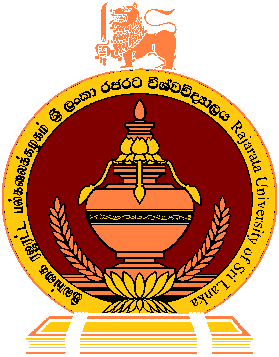Contribution to Undergraduate Program
The students are taught Microbiology in their 3rd academic year. It spans a period of one year, which includes two semesters, of fifteen weeks each. The programme is carried out using lectures, tutorials, practicals, demonstrations, small group discussions (SGD), computer associated learning (CAL) sessions and student directed self learning (SDSL) processes.
The basic objectives are to provide an understanding of the biology of pathogenic microorganisms, interaction between the organisms and their human hosts, available treatment and preventive measures. This knowledge will guide the students to provide proper diagnosis and advice, on treatment and prevention to the general public, as future medical practitioners.
The undergraduate program of Microbiology covers 4 major areas; General Microbiology, Systematic Microbiology, Clinical Microbiology and Immunology.
| General Microbiology | Gives an overview of all branches of microbiology, paying special attention to the area of medical microbiology. It aids in the students understanding the importance of learning microbiology with respect to infectious diseases. The history, development, structures and functions of prokaryotic and eukaryotic cells with their fundamental differences, use and misuse of antibiotics, importance of sterilization and disinfection and the genetic aspects of microorganisms are discussed. |
| Systematic Microbiology | Systematic microbiology covers the study of bacteriology, virology and mycology. It provides the understanding of the general characteristics, epidemiology, transmission, pathogenesis, clinical manifestations, treatment and prevention of bacteria, viruses and fungi of medical importance. |
| Clinical Microbiology | The clinical aspects and management procedures of bacteria, viruses and fungi are discussed with respect to each system that they cause infection and disease. |
| Immunology | The study deal with the physiological functioning of the immune system in states of both health and disease; malfunctions of the immune system in immunological disorders (autoimmune disease, hypersensitivity, immune deficiency, transplant rejection); the physical, chemical and physiological characteristics of the components of the immune system. |
| Practicals in Microbiology | Practical classes are held in order to provide knowledge and experience on widely used staining techniques in a Medical Microbiology Laboratory in order to identify bacteria. Further the students are exposed to practical classes on virology, mycology, and immunology to enhance their theoretical knowledge. |


